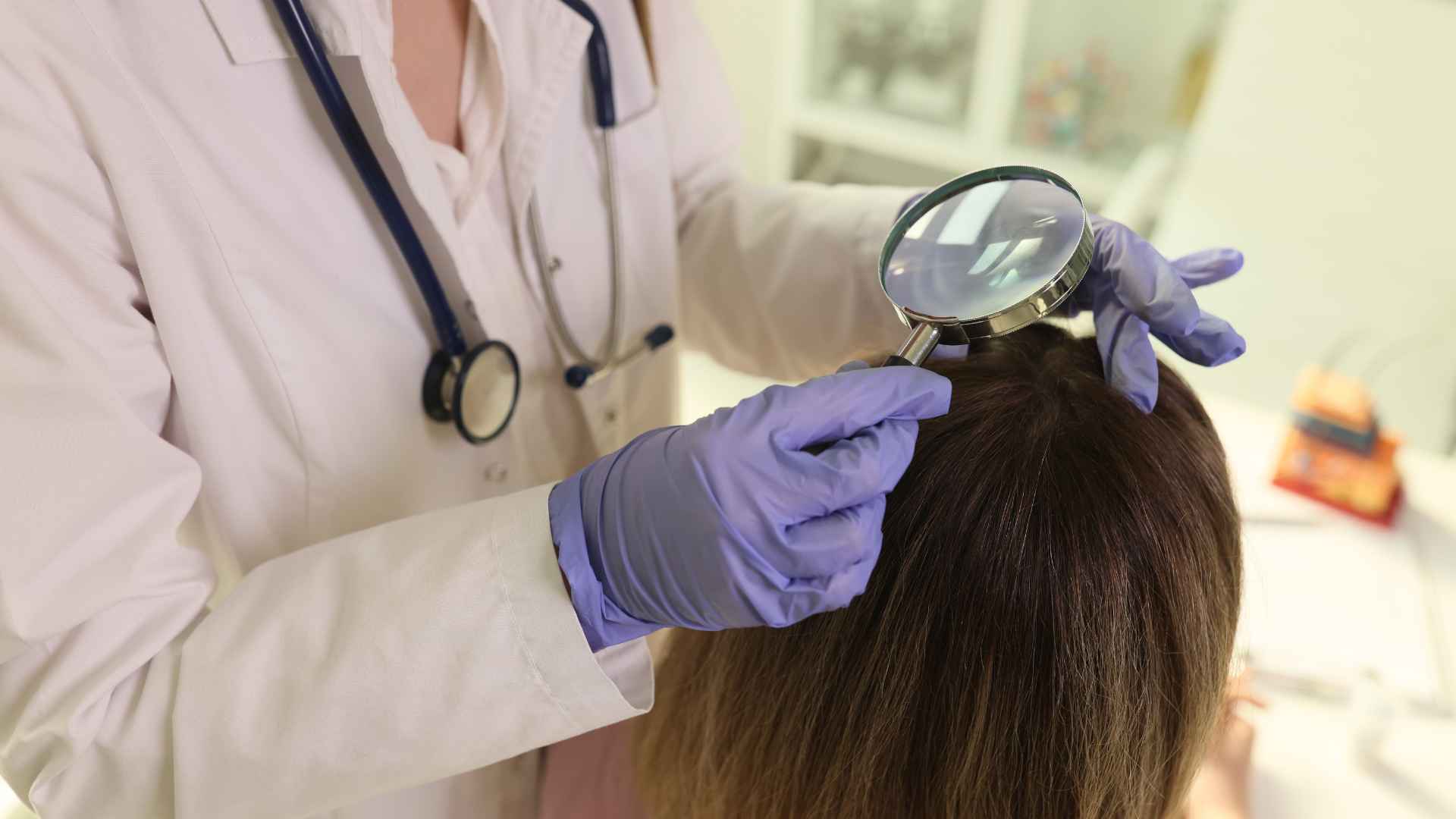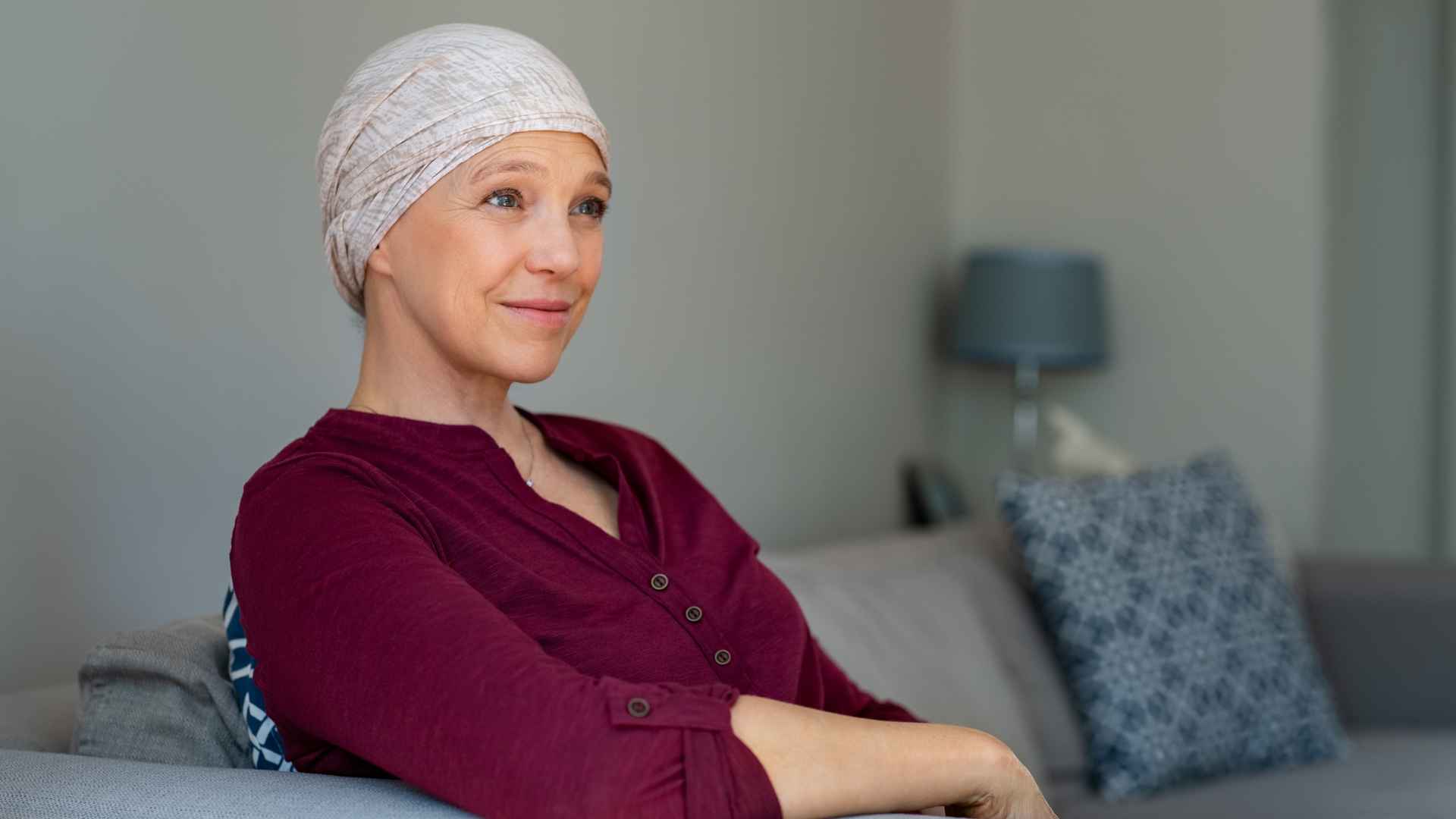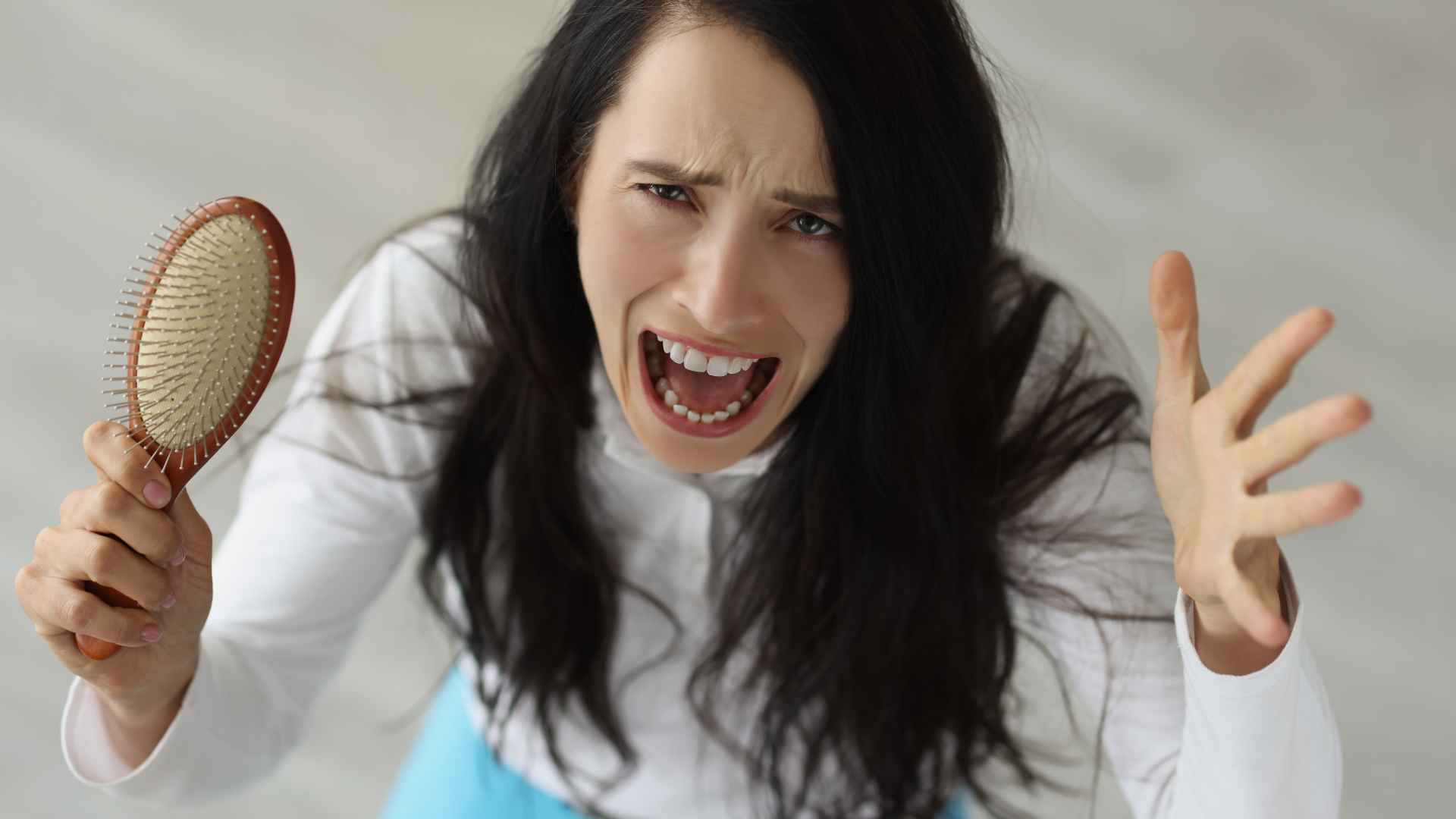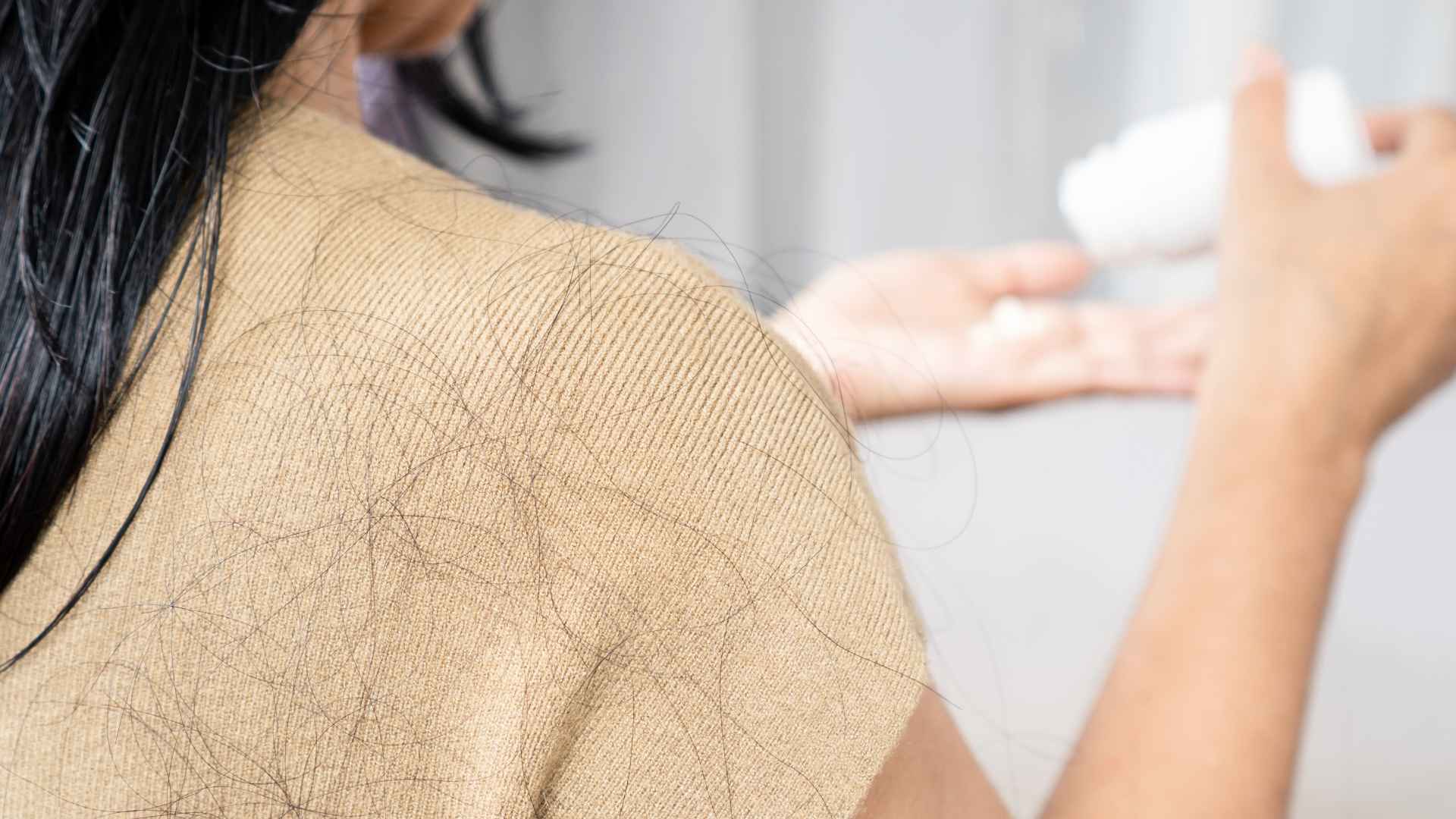Hair loss is a distressing side effect often associated with cancer treatments, particularly radiation therapy. The fear of losing one’s hair during radiation therapy can be a significant concern for patients. In this article, we aim to provide clarity on the subject and address the common question: Does radiation cause hair loss?
Radiation therapy is a commonly used treatment for cancer, employing high-energy radiation to target and destroy cancer cells. While its primary goal is to eradicate cancer, radiation therapy can affect healthy cells in the process. Hair follicles, which are rapidly dividing cells, can be impacted by radiation, leading to hair loss.
Understanding the effects of radiation on hair is essential for patients undergoing radiation therapy, as it helps manage expectations and cope with potential hair loss. Let’s delve deeper into the relationship between radiation and hair loss to shed light on this topic and provide information that can be helpful for those navigating cancer treatments.
Understanding Radiation Therapy

Radiation therapy is a powerful and widely used treatment for various types of cancer. It involves the use of high-energy radiation, such as X-rays or protons, to target and destroy cancer cells. This treatment can be administered in two primary ways: external beam radiation therapy and internal radiation therapy.
External Beam Radiation Therapy:
- External beam radiation therapy is the most common form of radiation treatment. It involves delivering radiation from a machine outside the body, precisely targeting the cancerous cells while minimizing exposure to healthy tissues.
- During external beam radiation therapy, a machine called a linear accelerator delivers radiation beams to the specific area of the body affected by cancer. The radiation is carefully calculated and divided into smaller doses, typically given over several weeks.
- Depending on the type and location of cancer, external beam radiation therapy may be directed at various parts of the body, such as the head, neck, chest, abdomen, or pelvis.
Internal Radiation Therapy (Brachytherapy):
- Internal radiation therapy, also known as brachytherapy, involves placing radioactive sources near or inside the tumor to deliver radiation directly to the cancer cells.
- This form of radiation therapy is commonly used for certain types of cancers, such as prostate, cervical, or breast cancer. Radioactive sources, in the form of implants, are either inserted temporarily or permanently into the affected area.
- The radiation emitted from the implants destroys cancer cells from within, minimizing exposure to surrounding healthy tissues.
While radiation therapy is highly effective in targeting cancer cells, it can also affect nearby healthy cells, including hair follicles. Hair loss, or alopecia, is a potential side effect of radiation therapy. The extent of hair loss depends on various factors, such as the dose and duration of radiation treatment, the area being treated, and individual sensitivity to radiation. Understanding the likelihood and potential impact of hair loss during radiation therapy can help patients prepare and cope with this aspect of their cancer treatment journey.
Mechanism of Radiation-Induced Hair Loss

Radiation therapy affects hair follicles by damaging rapidly dividing cells, including those responsible for hair growth. Here’s how radiation disrupts the hair growth cycle and leads to hair loss:
Damage to Hair Follicles:
- Radiation therapy delivers high-energy radiation to the targeted area, intending to kill cancer cells. Unfortunately, this radiation can also affect nearby healthy cells, including the hair follicles.
- Hair follicles contain cells that are actively dividing and responsible for hair growth. These cells are highly sensitive to radiation damage.
- The radiation disrupts the normal functioning of these cells, leading to their death or inhibition, which impacts the hair growth process.
Disruption of the Hair Growth Cycle:
- Hair grows in cycles, consisting of three phases: anagen (growth phase), catagen (transition phase), and telogen (resting and shedding phase).
- Radiation therapy can disrupt this cycle. The radiation-induced damage to the hair follicles can push them into the telogen (resting) phase prematurely, causing the hair to enter a shedding phase.
- As a result, the affected hairs begin to shed before completing their normal growth cycle, leading to noticeable hair loss.
Dosage and Area of Radiation:
- The extent and type of hair loss depend on various factors, including the dose and duration of radiation treatment, as well as the specific area of the body receiving radiation.
- Higher doses of radiation and prolonged treatment durations are more likely to result in significant hair loss.
- The area of the body receiving radiation also plays a role. For instance, radiation therapy targeting the head and neck region is more likely to cause hair loss on the scalp, eyebrows, and facial hair.
It’s important to note that radiation-induced hair loss is typically temporary. In most cases, hair regrowth begins several weeks to months after completing radiation therapy. The regrowth process may vary among individuals, and the new hair might have a different texture or color. Understanding the mechanisms behind radiation-induced hair loss can help individuals prepare for and manage this temporary aspect of their cancer treatment journey.
Areas Affected by Radiation-Induced Hair Loss
Hair loss due to radiation therapy is commonly observed in the specific area of the body receiving radiation treatment. The extent of hair loss can vary depending on the treatment site and individual factors. Here are the areas most commonly affected by radiation-induced hair loss:
Scalp:
- Radiation therapy targeting the head and brain region may cause hair loss on the scalp. This can include the entire scalp or specific areas, depending on the treatment plan.
- Hair loss on the scalp can range from mild thinning to complete baldness in some cases.
Facial Hair:
- Radiation therapy to the head and neck area may result in hair loss affecting facial hair, such as the eyebrows, eyelashes, and beard in men.
- The extent of facial hair loss can vary, and regrowth usually occurs after treatment completion.
Chest and Breast Area:
- Radiation therapy for cancers in the chest area, such as breast cancer, may lead to hair loss on the chest and breast region.
- The hair loss in these areas is usually temporary, and regrowth typically occurs within a few months after treatment.
Other Areas:
- Depending on the specific site being treated, hair loss may occur in other areas, such as the arms, legs, or pubic region.
- The likelihood and extent of hair loss in these areas can vary based on the radiation dose and individual response.
It’s important to note that radiation-induced hair loss is usually temporary. In most cases, hair begins to regrow a few weeks to months after completing radiation therapy. The regrown hair may initially have a different texture or color but gradually returns to its normal appearance over time. Hair regrowth is a positive sign of recovery after treatment completion.
Additional Factors That Can Influence the Severity and Duration of Radiation-Induced Hair Loss.

In addition to the dose and duration of radiation treatment, several other factors can influence the severity and duration of radiation-induced hair loss. Understanding these factors can help individuals better anticipate and manage their hair loss experience during radiation therapy. Here are some additional factors to consider:
Radiation Dose and Duration:
- The dose and duration of radiation treatment play a significant role in determining the severity of hair loss. Higher radiation doses and prolonged treatment durations are more likely to cause significant hair loss.
Individual Susceptibility:
- Each individual’s response to radiation therapy can vary. Some people may experience more pronounced hair loss, while others may have minimal hair loss or none at all.
- Individual susceptibility to radiation-induced hair loss can be influenced by genetic factors, overall health, and the body’s ability to repair damaged cells.
Hair Characteristics:
- Hair characteristics, such as hair type and color, can impact the appearance and regrowth of hair after treatment.
- Individuals with thicker hair may notice more visible hair loss compared to those with finer hair.
- Hair color can also influence the perception of hair loss. People with lighter-colored hair may appear to have more noticeable hair loss than those with darker hair.
Previous Hair Treatments:
- Previous hair treatments, such as chemical treatments, heat styling, or excessive pulling or tension on the hair, can affect the hair’s resilience during radiation therapy.
- Hair that has undergone significant damage from previous treatments may be more susceptible to hair loss during radiation therapy.
It’s important to note that while these factors can contribute to variations in hair loss during radiation therapy, hair loss is typically temporary. After treatment completion, hair regrowth usually begins within weeks to months. The regrown hair may initially have a different texture or color but gradually returns to its normal appearance over time. By considering these factors, individuals can have a better understanding of what to expect and make informed decisions regarding their hair care during and after radiation therapy.
Support and Practical Tips for Individuals Experiencing Radiation-Induced Hair Loss
Experiencing hair loss during radiation therapy can be emotionally challenging. However, there are several practical tips and options available to help individuals cope with and manage radiation-induced hair loss. Here’s how you can support yourself during this time:
Consider Hair Coverings:
- Many individuals choose to wear wigs, scarves, hats, or turbans to cover their heads during radiation-induced hair loss. These options can provide comfort, privacy, and a sense of normalcy.
- Explore different styles and materials to find what feels most comfortable for you. Look for wigs made from natural hair or synthetic materials designed for breathability and comfort.
Embrace Scarves and Head Wraps:
- Scarves and head wraps are versatile options that can be worn in various styles to match your personal style and preferences.
- Experiment with different tying techniques and colors to express your creativity and maintain confidence throughout your treatment.
Protect Your Scalp:
- During radiation therapy, it’s essential to protect your scalp from the sun, cold, and potential irritants.
- Use sunscreen or wear a hat with a wide brim to shield your scalp from harmful UV rays when going outdoors.
- Opt for soft and breathable materials like cotton or bamboo to minimize irritation and promote comfort.
Practice Gentle Hair Care:
- If you still have some hair remaining, treat it gently to minimize further hair loss or damage.
- Use a wide-toothed comb or a soft brush to avoid pulling or tugging on the hair.
- Avoid using harsh chemicals, heat styling tools, or tight hairstyles that may further weaken or damage the hair.
Seek Support:
- Reach out to support groups or connect with others who have gone through similar experiences. Sharing your thoughts, concerns, and feelings can provide emotional support and a sense of belonging.
- Consider speaking with a counselor or therapist who specializes in helping individuals cope with the emotional impact of cancer treatment.
Remember, hair loss during radiation therapy is usually temporary. Hair regrowth typically begins a few weeks to months after completing treatment. Until then, explore different options, experiment with styles, and prioritize self-care to enhance your confidence and well-being throughout the process.
Communicating with Healthcare Providers

During radiation therapy, it’s crucial to maintain open and honest communication with your healthcare providers regarding any concerns or questions about hair loss. They can provide valuable guidance, support, and resources to help you navigate this aspect of your treatment. Here’s why communicating with your healthcare team is essential:
Addressing Hair Loss Concerns:
- Share your concerns about hair loss with your healthcare providers. They can provide information specific to your treatment plan and offer insights into what to expect during and after radiation therapy.
- Discuss any anxieties or fears you may have regarding hair loss. Your healthcare team can provide reassurance, explanations, and resources to help you manage your emotions.
Seeking Advice and Support:
- Your healthcare providers are knowledgeable about the potential side effects of radiation therapy, including hair loss. They can provide advice on coping strategies, suitable hair coverings, and care tips specific to your situation.
- Ask about resources, such as support groups or counseling services, that can offer additional support during this challenging time. These resources can provide a safe space to share your experiences, connect with others facing similar challenges, and obtain emotional support.
Addressing Emotional and Psychological Effects:
- Hair loss can have emotional and psychological impacts. It’s important to discuss any distress or changes in self-esteem or body image with your healthcare team.
- They can provide guidance on managing these feelings and may be able to refer you to specialists or resources that can offer additional support, such as counselors or psychologists who specialize in oncology.
By openly communicating with your healthcare providers, you can ensure that your concerns and experiences regarding hair loss are acknowledged and addressed. Their expertise, guidance, and support can help you navigate this aspect of your treatment journey more effectively and provide you with the necessary resources to cope with the emotional and psychological impact of hair loss. Remember, your healthcare team is there to support you every step of the way.
Hair Regrowth after Radiation Therapy:
After completing radiation therapy, many individuals wonder when and how their hair will regrow. It’s important to note that the regrowth process can vary among individuals, and the timeline for hair regrowth after radiation therapy is different for everyone. Here’s what you can expect:
Individual Variations:
- The regrowth of hair after radiation therapy is influenced by various factors, including the specific radiation treatment received, the dosage, the individual’s overall health, and genetic factors.
- Some individuals may experience hair regrowth relatively quickly, while others may take longer. Each person’s body responds differently to radiation and the healing process.
Typical Timeline:
- In general, hair regrowth begins within several weeks to months after completing radiation therapy.
- Initially, the regrown hair may appear fine, thin, or different in texture and color compared to your original hair. This is normal and is usually temporary.
- Over time, as the hair follicles regain their normal function, the regrown hair will often return to its previous thickness, texture, and color.
Patience and Self-Care:
- It’s essential to be patient and practice self-care during the regrowth process. Hair regrowth is a positive sign of healing and recovery.
- During this time, take care of your scalp and newly regrown hair. Be gentle when washing, brushing, or styling your hair to avoid causing damage or unnecessary stress to the recovering hair follicles.
- Engage in self-care practices that promote overall well-being, such as eating a balanced diet, getting regular exercise, managing stress, and getting sufficient rest. These practices can support healthy hair regrowth.
Remember, the process of hair regrowth after radiation therapy is unique to each individual. It’s important to be patient and take care of your scalp and regrown hair. If you have concerns or questions about the regrowth process, don’t hesitate to reach out to your healthcare providers for guidance and reassurance. They can offer insights specific to your situation and provide support throughout your healing journey.
Watch Hair loss in radiation therapy | Video
Top 5 FAQs and answers related to Does radiation therapy cause hair loss
Does radiation always cause hair loss?
No, hair loss is not guaranteed with every radiation treatment. The likelihood and extent of hair loss depend on factors such as the radiation dose, treatment area, and individual susceptibility. Some individuals may experience minimal or no hair loss, while others may experience more noticeable hair loss.
Will my hair grow back after radiation therapy?
Yes, in most cases, hair regrowth occurs after radiation therapy. The regrowth process can vary among individuals, but it typically begins within several weeks to months after treatment completion. Initially, the regrown hair may appear different in texture or color, but it often returns to its previous characteristics over time.
Is radiation-induced hair loss permanent?
No, radiation-induced hair loss is usually temporary. As the hair follicles recover from the radiation, they can resume their normal growth cycle, leading to regrowth. However, it’s important to note that in some cases, hair regrowth may be slower or incomplete, and the texture or thickness of the regrown hair may be slightly different.
Can I prevent hair loss during radiation therapy?
Unfortunately, it is challenging to prevent hair loss specifically during radiation therapy. The focus of radiation treatment is to target cancer cells, and healthy cells, including hair follicles, can be affected as well. However, practicing gentle hair care and protecting the scalp from sun exposure can help promote overall scalp health during and after treatment.
Are there any treatments to help with hair regrowth after radiation therapy?
While there are no specific treatments to accelerate hair regrowth after radiation therapy, maintaining a healthy lifestyle, including a balanced diet, regular exercise, and stress management, can support the regrowth process. Additionally, being patient and allowing your body time to heal is crucial. If you have concerns about hair regrowth or the appearance of your regrown hair, consult with your healthcare provider for personalized advice and guidance.
Conclusion

In conclusion, we have explored the relationship between radiation therapy and hair loss. Here are the key points to remember:
- Radiation therapy, a common treatment for cancer, can cause temporary hair loss as a side effect. The extent of hair loss depends on factors such as radiation dose, treatment area, and individual susceptibility.
- Radiation damages hair follicles, disrupting the hair growth cycle and leading to hair loss. However, hair loss due to radiation therapy is typically reversible.
- Hair regrowth after radiation therapy varies among individuals but usually begins within several weeks to months after treatment completion. The regrown hair may initially appear different in texture or color but often returns to its previous characteristics over time.
- It is important for individuals undergoing radiation therapy to communicate openly with their healthcare providers regarding hair loss concerns. Healthcare providers can offer guidance, support, and resources to effectively manage hair loss during and after treatment.
- While there are no specific treatments to expedite hair regrowth after radiation therapy, practicing self-care, maintaining a healthy lifestyle, and being patient are essential during the regrowth process.
It is crucial to consult your healthcare providers for personalized advice and support. They can provide guidance tailored to your situation and offer resources to help manage hair loss effectively. Remember, hair loss due to radiation therapy is temporary, and with time and proper care, hair regrowth can occur, allowing you to embrace a new chapter of healing and recovery.
Please share this Does Wearing a Hat Cause Hair Loss? Fact from Fiction Guide with your friends and do a comment below about your feedback.
We will meet you on next article.
Until you can read, Does Stress Cause Hair Loss and Will It Grow Back? Guide